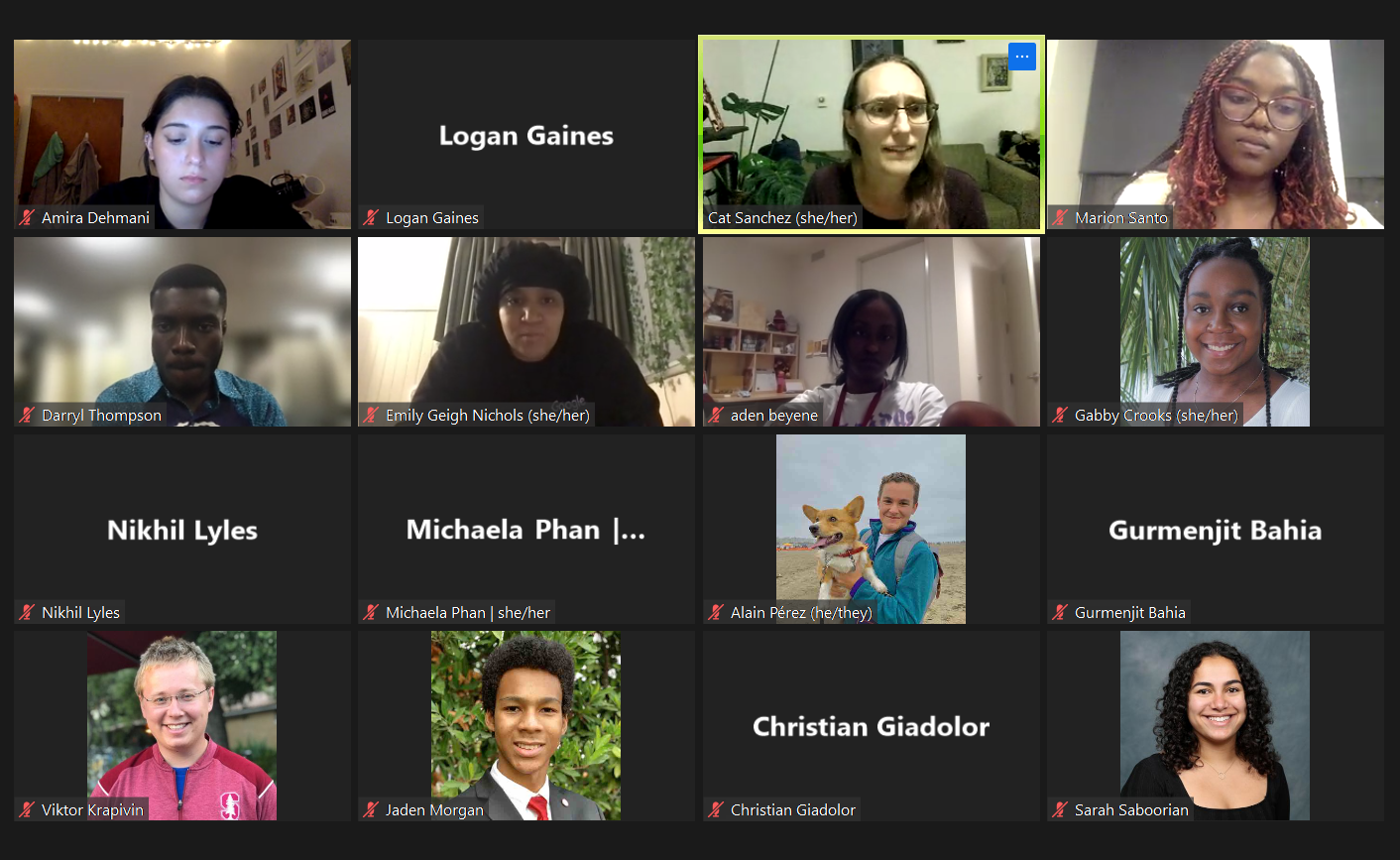Senators discussed proposed changes to the University’s Honor Code from the committee of 10 (C-10), including allowing professors to proctor exams and increased student input in the judicial process for Honor Code violations, during Tuesday’s Undergraduate Senate meeting.
C-10 is a group of students, faculty and staff members tasked with reevaluating and updating the University’s judicial process. The C-10 amendments, developed in response to increases in cheating during remote learning amid COVID-19, passed in the Graduate Student Council earlier this month.
Currently, students are allowed to take tests without proctors. Last week, senators discussed the proposed amendments and the significance of changing this long-standing policy.
Third-year sociology Ph.D. candidate Cat Sanchez ’19, who serves as student co-chair on Stanford’s Board of Judicial Affairs, discussed the proposed changes with senators. The Student Judicial Charter, comprised of the Honor Code and the Fundamental Standard, was last updated in 1997.
“Things were very, very different in the way that we teach and learn,” Sanchez said, adding that it is important to modernize the policies.
Sanchez acknowledged student pushback to the amendments, particularly the change to policies on proctoring. However, she explained that the intention of the changes was not to be punitive and that the committee was seeking changes that would balance the interests of faculty and students.
Senator Alain Perez ’23 added that it is imperative to make the judicial process less punitive and more understanding of “the societal and structural harm that disproportionately affects different students and how that will lead them sometimes to break the Honor Code.”
While enforcement of new rules needs to be considered further, Sanchez said C-10 is hoping to create transparent policies that would be explicitly articulated in syllabi and clear to students.
She also suggested an open process for student feedback on Honor Code changes, as well as engaging students in the process of responding to honor code violations. More students could be added to the pool of panelists during the judicial process to ensure the four students on the judicial panel were more representative of the student body, Sanchez recommended, Sanchez recommended.
Senator Marion Santo ’23 expressed support for increasing student engagement and said that she is especially excited “about outreach and getting more student voices in play.” Santo added that an issue that currently exists is a lack of student knowledge about Honor Code policies. To remedy this, she proposed involving resident assistants (RAs) in raising awareness.
While Sanchez said the committee was told RAs did not have the capacity for additional training on academic misconduct, she said that training a community member to raise awareness is a good idea. Some senators said they were concerned about the redundancy of appointing a new member when academic and student advisors could potentially take on that role. The committee is exploring ideas to involve undergraduate students in creating the new judicial process and generally foster greater awareness of the judicial process, according to Sanchez.
Associated Students of Stanford University (ASSU) President Christian Giadolor ’21 also provided an update from the executive branch to the Senate. Executives made a presentation about ASSU and the organization’s priorities for the steering committee of the Faculty Senate on Sept. 28, according to Giadolor. The members of the steering committee were particularly interested in the prospects of partnering with or coordinating opportunities with the ASSU, Giadolor added.
Senator Aden Beyene ’24 shared that she, Senator Emily Nichols ’23 and members of the Black Student Union are working to present a list of demands to the University regarding the administration’s response to Chaze Vinci’s ’23 racist rhetoric towards the Black community. The demands include financial reparations for Ujamaa House, an ethnic theme dorm that focuses “on the histories, issues, and cultures of the Black Diaspora,” as a significant part of Vinci’s rhetoric included calls to abolish Ujamaa, according to Beyene.
The University has not responded to their outreach, according to Beyene. She and Nichols encouraged other Senators that were interested in being involved with the effort to reach out to them.
“I think there’s strength in numbers when it comes to this, so I would really appreciate the aid and making sure admin actually hears our calls and demands,” Beyene said.
This article has been corrected to reflect that the demands from Beyene, Nichols and members of BSU have not yet been presented to the University.
This article has been corrected to reflect that Cat Sanchez is not a C-10 representative, and the proposed changes in the C-10 amendments for increasing students in the panelist pools and for proctoring to replace the current policy of allowing students to take tests monitored by each other. The Daily regrets this error.
